Table of Contents
Introduction
With the rapid pace at which technology is developing, automation has emerged as a game-changing industry. Various control systems, such as mechanical, hydraulic, pneumatic, electronic, electrical, and computer-based ones, all work together to regulate dynamic processes in designed systems and equipment. Fundamentally, automation seeks to decrease the time that humans spend on repetitive operations while speeding up workflows by leveraging automated software, specialised tools, and the cutting-edge capabilities of artificial intelligence.
This article looks at the far-reaching effects of automation across a variety of industries. The rise of automated systems has ignited a revolution that is upending conventional methods of manufacturing and employment. Manufacturing, logistics, healthcare, and the financial sector are just few of the sectors that have benefited greatly from the implementation of automation.
By reducing the limitations of human labour and allowing for continuous and dependable operation, automation is able to boost productivity. The precision and dependability of automated systems have also allowed for the production and provision of higher-quality products and services.

As it takes over potentially harmful tasks, automation places increased emphasis on worker safety. In addition, simpler workflows and optimised procedures have improved businesses’ ability to meet stringent deadlines and respond to the rapidly changing dynamics of the market.
The journey towards full automation still has a long way to go. The rapid progress of AI and machine learning enables the creation of more revolutionary applications. From futuristic smart cities to driverless cars, the transformational potential of automation is unprecedented.
In conclusion, automation has dramatically altered several industries, delivering massive benefits in terms of efficiency, safety, and workflow optimisation. Keeping up with the competition in the global economy requires businesses to use automation. The ripple effects of automation will continue to shape the destiny of industries throughout the world, opening up exciting new possibilities for growth.
Strength of Automation
Explain how automated processes work.
Automation is the process of completing tasks with minimal or no involvement from a human worker. It makes use of a wide range of technologies, including electronics, mechanics, hydraulics, pneumatic, and more besides. This combination makes it possible to do complex tasks that formerly needed only human work with relative ease.
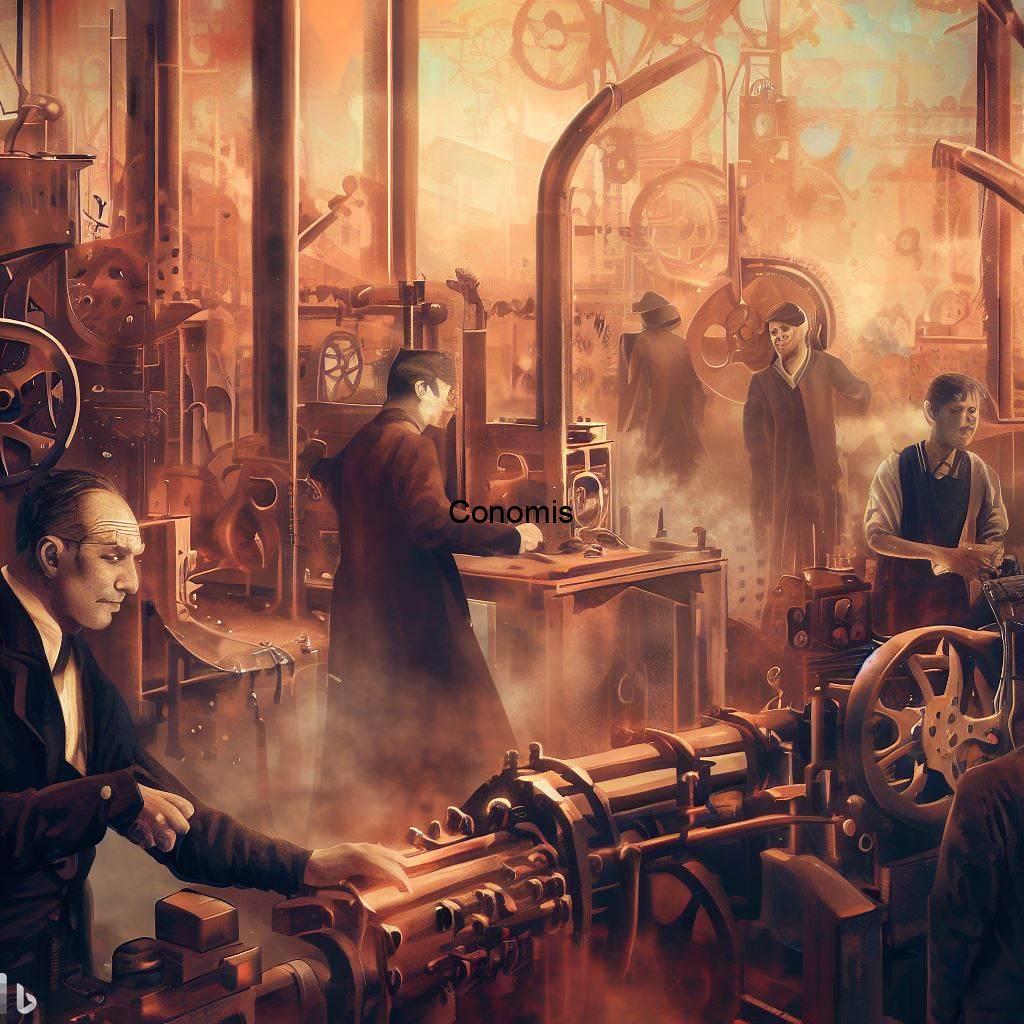
The Beginnings of Automatization
The concept of automation originated during the Industrial Revolution, a turning point in human history that witnessed the transition from handiwork to mechanised processes. The early pioneers of innovation, recognising the need of maximising production efficiency, looked for novel approaches to do so. Thus, automation was born, but with its full potential not yet understood.
The 20th century saw the widespread use of automated processes as a result of significant technology advances. The automation movement was sparked by the rise of digital technology like computers. These revolutionary findings allowed automation to progress greatly.
With the advent of computers and digital control systems, many tasks and procedures may be automated to reduce the time, effort, and error associated with human intervention. This ushered in a new era in which companies may potentially employ automation to achieve hitherto unimaginable levels of output and efficiency.
Manufacturing, transportation, healthcare, and even communication were all profoundly impacted by automation throughout the 20th century. Automation not only enhances current processes, but also creates new markets and opportunities for employment.
Automation has spread to nearly every area of modern life and established itself as an absolute requirement. Everything from self-driving cars and smart houses to automated production lines and artificial intelligence-powered devices has benefited greatly from automation.
In conclusion, the full potential of automation wasn’t fulfilled until the advent of computers and digital technologies in the 20th century, despite the fact that its roots can be traced back to the Industrial Revolution. Since then, the automation revolution has altered the industries we rely on and the way we go about our daily lives. As technology advances, even more remarkable developments are on the horizon for automation.
Degree of Computerisation
Automation has far-reaching effects, touching a wide variety of fields and industries. Shipping, manufacturing, healthcare, and even the financial sector have all been affected by the rise of automation. Automated systems have the potential to perform a vast array of tasks, from routine, repetitive tasks to those requiring complex decision-making.
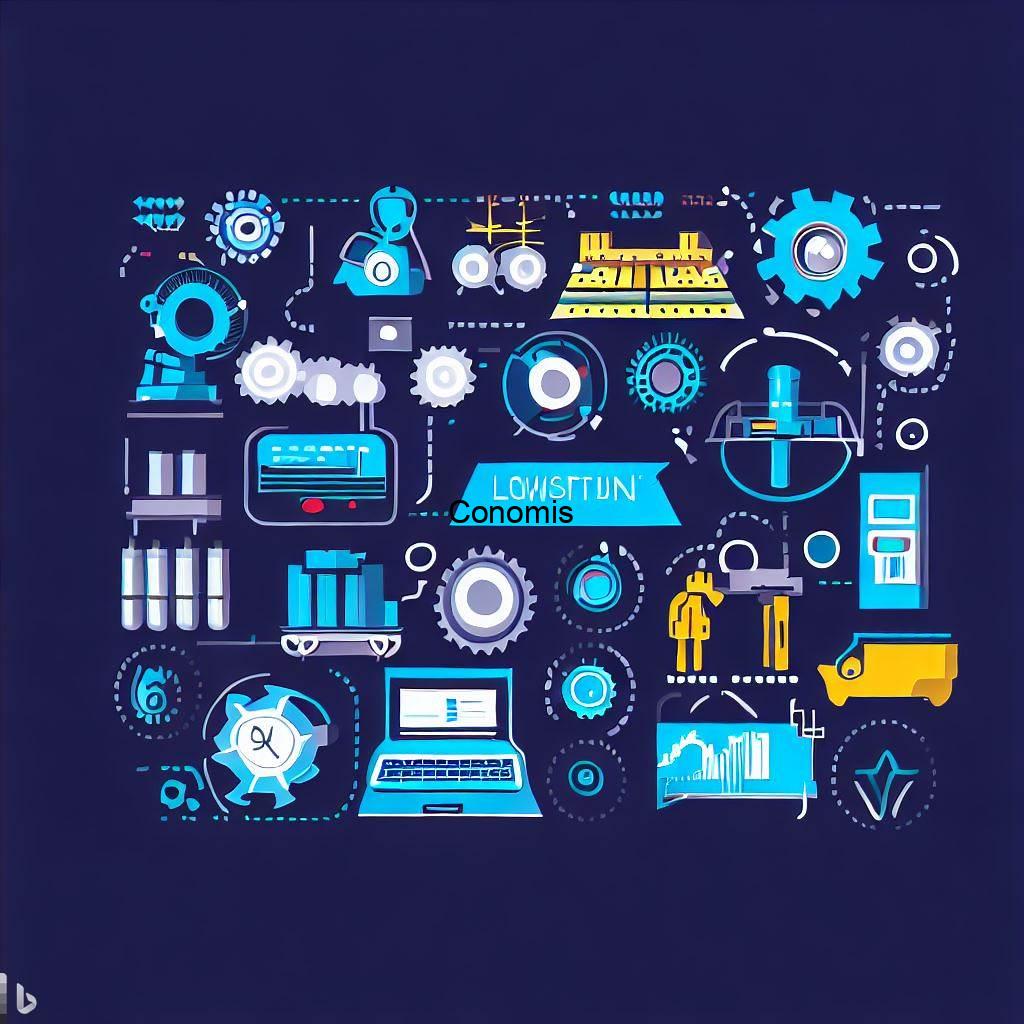
The Value of Robotics in Today’s Manufacturing
Automation has completely altered the production process in the industrial business. Manufacturing processes are now faster, more efficient, and less expensive thanks to automation. Smart technologies and complex systems were added to make this possible. The widespread use of automated processes marked by the replacement of human work by computer-controlled robots and machines.
Because of the use of robots and automated equipment, greater precision and accuracy are now achievable. As a result of the drastic reduction in the number of mistakes made by humans, product quality as a whole has increased.
Those areas of production that have adopted automation have seen increases in productivity and output. Automating formerly labor-intensive processes has allowed for more output with less time spent on each unit.
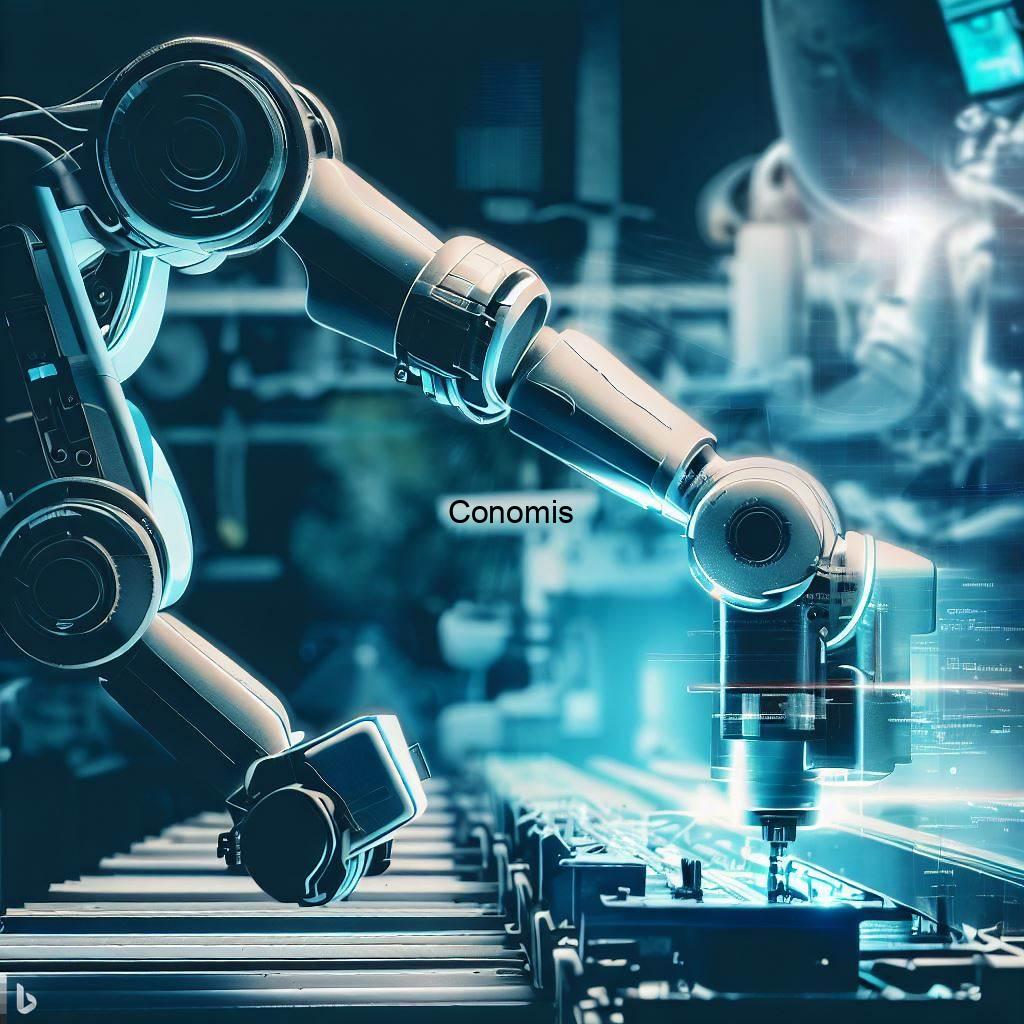
Worker safety has also greatly improved because to automation. By evacuating individuals from hazardous zones, the incidence of accidents and injuries has been drastically cut down. In addition to protecting workers from harm, this also reduces the financial burden of workplace mishaps.
The industrial revolution that automation began is still ongoing. Machine learning and AI promise to further streamline manufacturing processes, suggesting that more automation is only the beginning.
In conclusion, automation has increased the speed, efficiency, and accuracy of the industrial sector to new heights. Robots and computer-controlled technology have mostly replaced manual labour, boosting output while reducing human error. Future manufacturing might be more refined, environmentally friendly, and flexible to meet consumers’ ever-evolving demands thanks to automation technologies.
Boosting Efficiency in Supply Chain Management
Automation has been a game-changer in the logistics industry, dramatically altering the ways in which supply chains function. Automation in the workplace has improved the efficiency of several tasks, including order fulfilment, stock management, and shipping to customers.
Automated inventory management systems have shown to be highly successful in preventing stockouts and overstocking while keeping inventory at optimal levels. This level of precision has helped logistics companies cut costs and better allocate resources.
The elimination of human error and the minimization of delays are two additional benefits of automating the order processing phase of the fulfilling process. Orders that are processed quickly and accurately may be packed and sent out to customers more quickly. As a result, logistics operations have become more efficient overall due to shorter lead times.
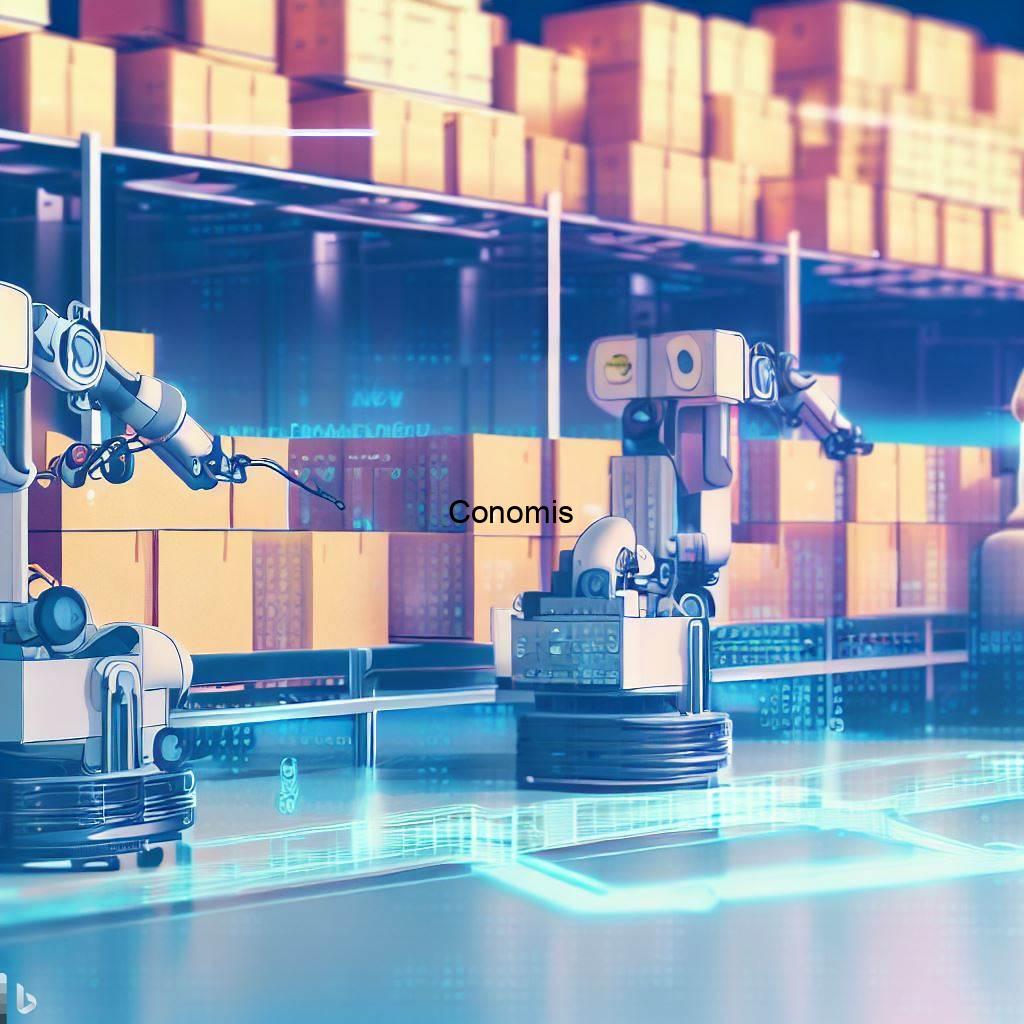
One of the most noticeable advantages of automation in logistics is the positive effect it has on customer satisfaction. Customers are more satisfied as a direct result of shorter order processing and shipping timeframes. In addition, customers are given greater visibility into the status of their purchases thanks to real-time updates and automated tracking.
Businesses have been able to adapt to customers’ ever-changing wants and demands thanks to automation in the logistics sector. With the help of automated technology, logistics service providers may expand their operations and adapt to market shifts with more agility.
Overall, the logistics industry has been revolutionised by automation, which has improved processes ranging from stock management to order fulfilment. With the use of automated technology, lead times have been drastically reduced, and both customer satisfaction and the efficiency of logistical operations have increased. Automation will play a crucial role in developing a supply chain that is more adaptable, customer-centric, and sustainable as technology continues to advance, opening up exciting new opportunities for the logistics industry in the future.
Health Care and Technology
As a result of automation, the healthcare industry is entering a new era marked by revolutionary improvements in patient care, medical procedures, and diagnostic capabilities. Medical professionals may now offer patients improved treatment outcomes and more cutting-edge care thanks to the widespread adoption of automated technologies.
One of the most significant innovations in healthcare automation is the use of robotic surgery. Surgeons now have more precision and control over complex procedures thanks to robotic-assisted surgical instruments, allowing for less invasive operations and faster recoveries. Surgeons’ powers are greatly expanded by these robotic technology, and surgical procedures may be carried out with a level of accuracy never before achieved.
Furthermore, automation has tremendously helped in the optimisation of medical operations. Automated devices and systems reduce the burden on healthcare workers by assisting with tasks that were previously performed manually. Increased patient throughput, more efficient workflow, and shorter wait times are all results of this optimisation.
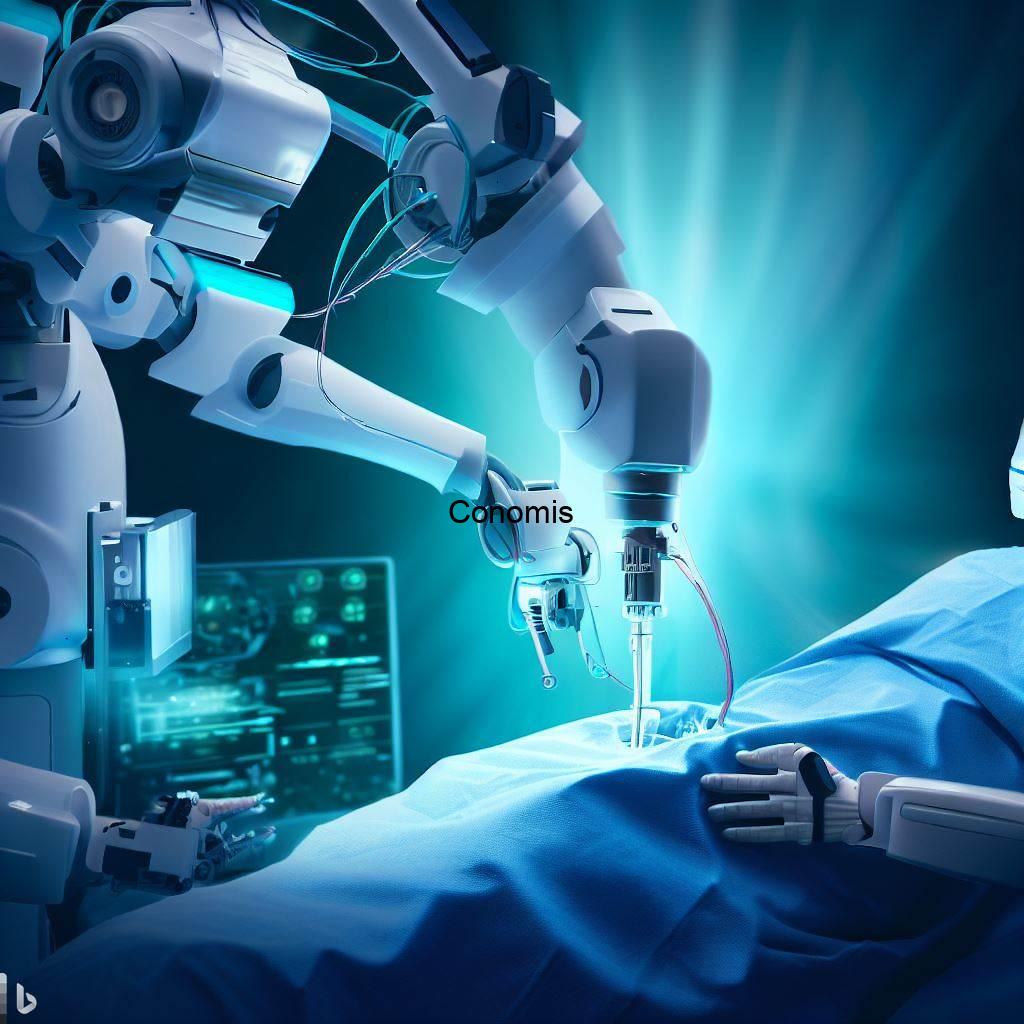
One of the most noticeable results of automation in healthcare is probably its impact on diagnosis. Medical imaging and data processing technologies driven by AI have transformed the precision and speed with which illnesses may be diagnosed. With the help of automation, doctors can swiftly sift through vast amounts of patient data and arrive at more accurate diagnoses.
Personalised, data-driven treatment plans are one way in which automation has improved patient care. By analysing patient information, doctors may tailor care to each individual’s needs and deliver more targeted treatment.
As healthcare increasingly utilises automation, we may anticipate even more revolutionary advances in the near future. The integration of AI, machine learning, and data analytics has the potential to revolutionise disease prevention, customised therapy, and population health management.
Patient care, medical procedure efficiency, and diagnostic progress are just some of the ways in which automation is reshaping the healthcare industry. Automation has evolved into an essential resource for healthcare professionals, allowing them to provide higher-quality treatment and make more educated decisions. Robotic surgery and artificial intelligence-enhanced imaging are two such examples. Eventually, improvements in automation will lead to better patient outcomes and a healthier population as a whole by making healthcare more efficient, precise, and accessible.
The Monetary Consequences
The banking sector has fully used automation to enhance procedures. Automation has substantially improved the safety and efficacy of processes like fraud detection, risk assessment, and customer service. This shift is made possible by the increased speed and accuracy with which financial institutions can examine and make decisions thanks to the use of automated algorithms. By reducing the need for human interaction and the likelihood of error, automation has increased the reliability and security of financial operations, to the advantage of both institutions and their customers. The financial industry is still in the early stages of adopting automation, which means that innovative solutions to meet the evolving needs of the modern financial environment are still being developed.

Automation’s Many Perks
Increased Efficiency
Automation’s ability to significantly boost productivity is one of its main benefits. The uninterrupted, fatigue-free performance of automated systems leads to greater production and reduced operational costs. Automation allows for a continuous process with fewer interruptions than would be possible manually, leading to higher productivity and reliability. Overall output rises as a result of efficiency gains, which also improve resource utilisation and cut running costs. Because of automation’s ability to operate continuously and efficiently, firms in the manufacturing, logistics, and other sectors can keep up with the rest of the world in the increasingly fast-paced global market.
Accuracy Improved
Automating tasks that were once performed by humans guarantees an unprecedented level of consistency and accuracy. Eliminating human intervention and replacing it with automated technology has greatly improved the reliability of processes, resulting in the production of higher-quality items and the delivery of superior services.
Mistakes are easy for humans to make, but they can have substantial consequences in high-stakes, repetitive jobs. The seamless and error-free performance of automated processes guarantees consistency and precision. This eliminates any room for blunders on the part of humans. Customers are reassured of the excellent quality of the product or service and are more confident in the results because to this increased reliability.
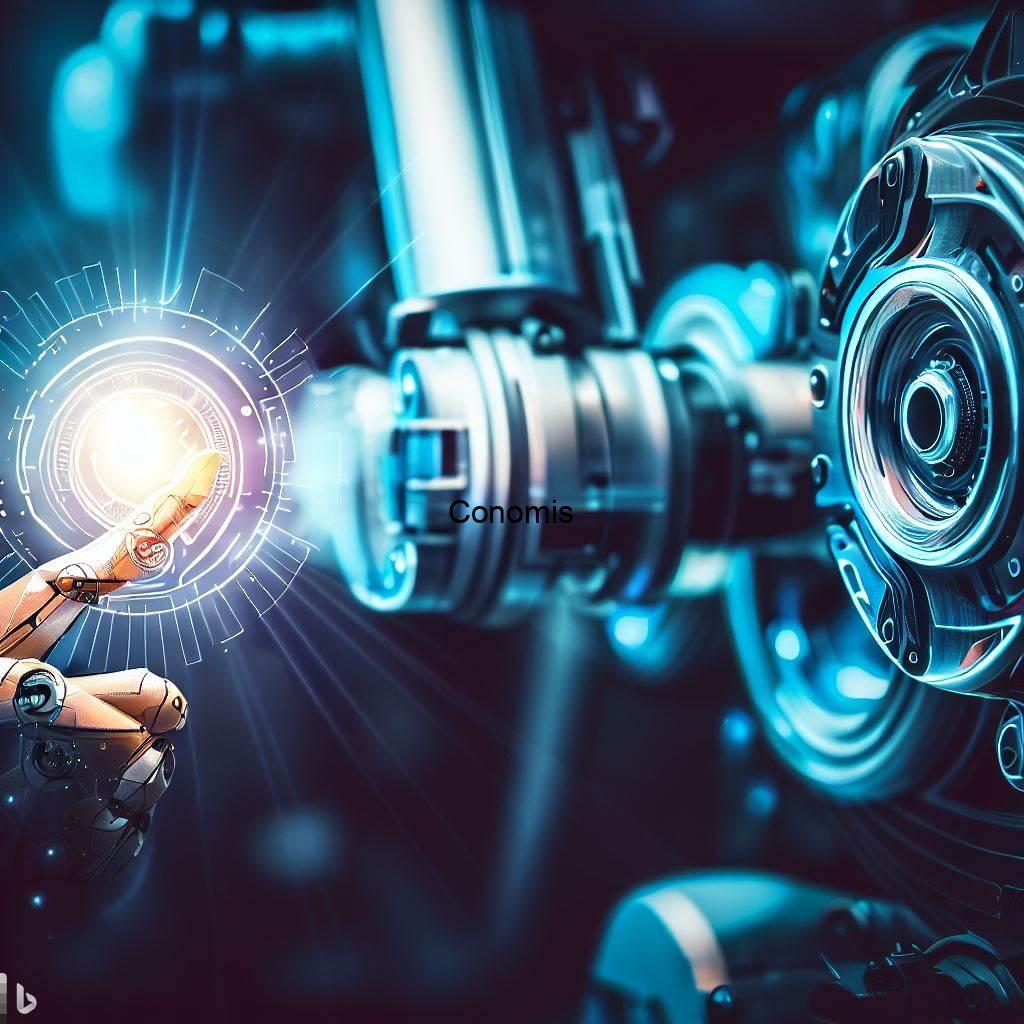
In addition to reducing the potential for mistakes, automation also improves accuracy. Since automated systems are programmed to operate within certain parameters, they are less prone to inconsistencies. Manufacturers and service providers may establish credibility and expertise by consistently satisfying customer needs.
Customers are far more satisfied and loyal to businesses that have implemented automation. Customers have faith in the company and the services they receive because automated processes are reliable.
The importance of automation in achieving consistency and precision, in conclusion, cannot be overstated. The introduction of automation has become an integral part of quality assurance due to its ability to eliminate human mistake while upholding rigorously specified rules. Customers are won over because of the improved reliability, which in turn leads to the production of better products and services. As technology improves, automation will remain crucial in defining industries worldwide, fostering growth, and setting new standards for excellence.
Less Danger, Greater Security
Protecting human workers by lowering safety risks and providing a lifeline, automation is essential in hazardous industries. Automation is crucial in many fields because of the prevalence of dangerous tasks and potentially lethal circumstances. By using robots and machines, businesses may effectively remove people from potentially dangerous situations and shield them from the hazards associated with doing such duties.
Automated systems are built for the sole purpose of doing tasks that pose serious risks to human workers. These responsibilities may put the employee in harm’s way by putting them in contact with hazardous substances, high temperatures, or pressures. Accurate and long-lasting robots may safely go anywhere and do work without endangering humans.
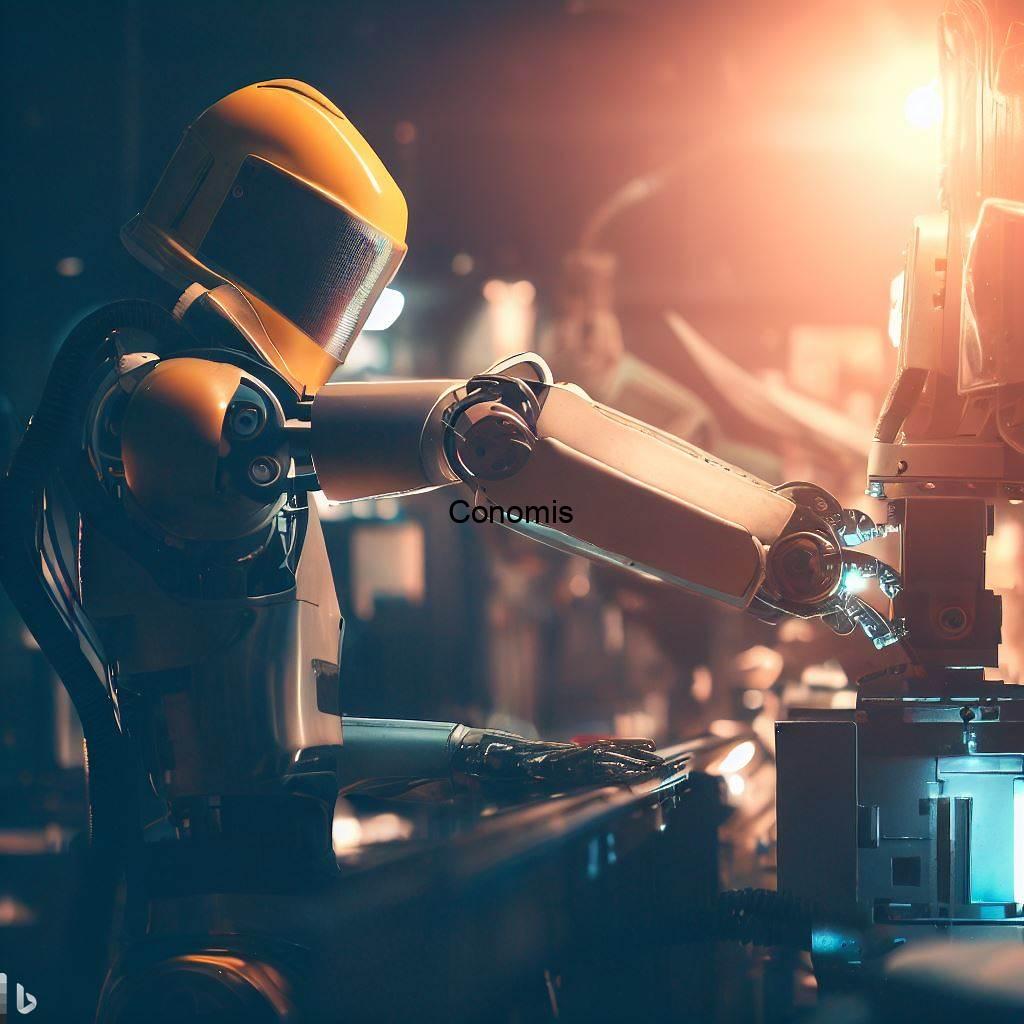
In hazardous industries, automation boosts output and efficiency while protecting workers from harm. Automated systems can keep working without becoming weary or taking breaks, even in dangerous environments, ensuring a constant and reliable output.
Risky sectors also make use of automation alongside elaborate safety protocols and watchful eye technology. These precautions add an extra degree of safety, guaranteeing safe and effective automation at all times.
As a whole, automation is a game-changer in hazardous industries since it prioritises human workers’ wellbeing and reduces the number of accidents and injuries that occur on the job. With the advancement of technology, the usage of automation in various fields will rise, leading to safer workplaces and more environmentally friendly industrial practises.
Streamlining Procedures
Automation is a useful method for streamlining operations and boosting productivity by reducing wait times and other inefficiencies. Automating a wide range of processes is one way for businesses to improve efficiency and speed. Due to enhanced efficiency, businesses are better able to meet demanding deadlines, respond rapidly to client requests, and remain flexible in the face of fluctuating market conditions. While automation takes care of the boring and time-consuming tasks, workers can focus on the more strategic and creative aspects of their jobs, fostering creativity and increasing productivity. Faster and more accurate product delivery might put a company ahead of the competition, leading to happier customers and more sales.
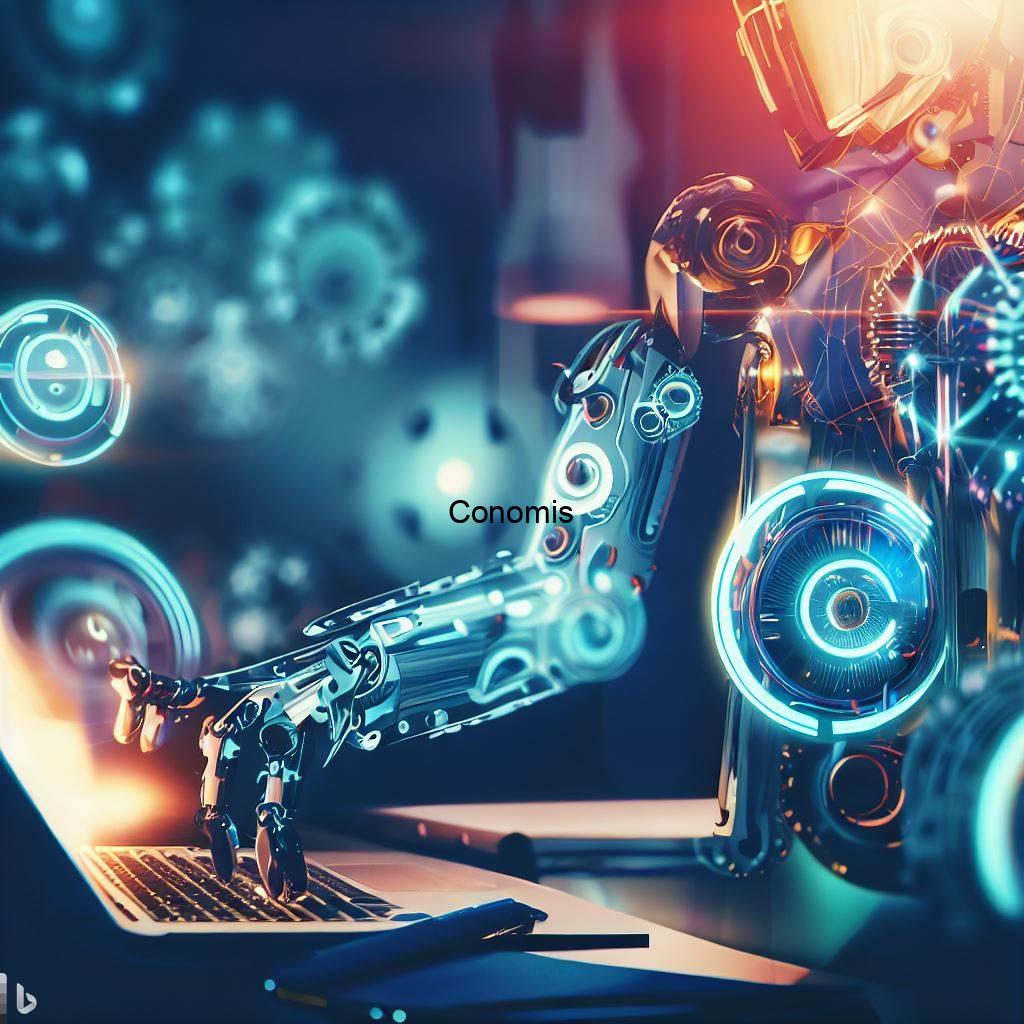
Automation’s Future Prospects
The rapid advancement of technology, notably AI and ML, is contributing to the extraordinary change currently taking place in the automation business. These revolutionary innovations are changing the face of whole sectors, pushing the boundaries of automation into new realms, and impacting every aspect of our lives. As AI and ML capabilities expand, automation will evolve beyond our current understanding and find applications in previously imagined sectors.
Building “smart cities” is one of the most promising applications of automation technology. Automating urban infrastructure has been shown to make a city more efficient, eco-friendly, and responsive to its citizens’ needs. Public services, waste management, transportation, and energy efficiency are just few of the areas that might benefit from automation.
Another exciting new field is autonomous vehicles. Automation has the potential to revolutionise the transportation sector by paving the way for autonomous cars and trucks. The introduction of autonomous vehicles has the potential to completely alter the way we travel and commute, making roads more secure, reducing congestion, and making roads more accessible for those with disabilities.

One area where automation shows promise is in the form of personalised AI helpers. As AI develops, these helpers will become like virtual pals that know exactly what we need before we ever ask for it. A personalised AI assistant can help us get more done by handling mundane tasks and organising our schedules.
These are only a few examples of when automation has proven useful; the list is actually rather long. As our knowledge of what is possible grows thanks to technological advancements, automation will keep pushing the boundaries of efficiency, convenience, and connectedness. The full benefits of automation cannot be realised until its users embrace and responsibly apply it. By doing so, we can pave the path for a future in which smart robots can augment human capabilities, leading to increased productivity and a brighter future.
Conclusion
The journey of automation from its early days to present day is quite remarkable. It will have far-reaching effects on many industries and on society as a whole. The integration of mechanical, hydraulic, pneumatic, electronic, electrical, and computer-based control systems has led to a dramatic improvement in the efficiency, accuracy, and safety of formerly manual operations. With the rapid development of technology, the scope for automation is limitless.
Many sectors, including as manufacturing, healthcare, transportation, and the financial sector, are impacted by automation. It has helped businesses achieve new heights of success by increasing production and decreasing waste. Workplace safety has increased as a result of automation’s increased task accuracy and speed and decreased human error.
In today’s information age, when technological progress is driven by new ideas, automating formerly manual processes is not an option but a must. Businesses that wish to survive in the modern economy must integrate automation into their processes. The world is getting more dynamic and mechanised, and those who do not adapt risk being left behind.
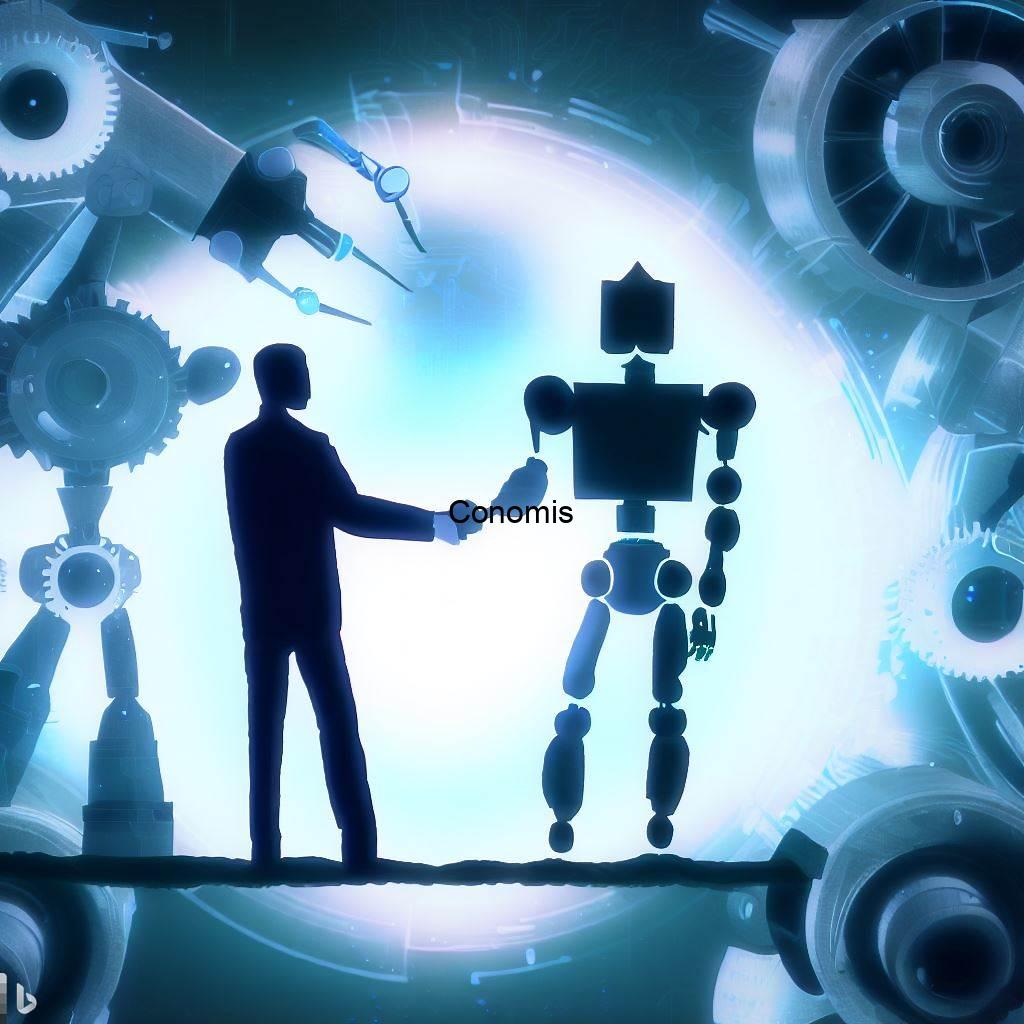
However, a middle ground must be found between automation and human ingenuity. When properly implemented, automation may complement rather than replace human abilities. By integrating automation into their processes, businesses can get the most out of their employees, as humans and machines can now collaborate in seamless ways to drive creativity to new heights.
In conclusion, automation has advanced greatly since its infancy and has had far-reaching consequences for both the public and private sectors. Its value in boosting efficiency, precision, and security is plain to see. As science and technology advance, the scope of automation will expand, creating new opportunities for growth and prosperity. In today’s fast-paced and competitive world, firms that want to thrive must use automation as a core strategy.
FAQs
What are the fundamental components of automated systems?
Automation encompasses not just computerised control systems, but also mechanical, hydraulic, pneumatic, electronic, and electrical machinery.
Which sectors will benefit the most from robot labour?
Productivity, accuracy, safety, and efficiency are all enhanced and procedures are simplified thanks to automation in various industries.
Does automation solely exist in the manufacturing sector?
Contrary to popular belief, automation is not limited to the healthcare, financial, or logistics industries.
Where does AI come into robotics?
Artificial intelligence (AI) has an impact on automation since it enables smarter decision-making and the automation of formerly manual tasks.
When it comes to automation, what does the future hold?
Advances in robotics, AI, and other forms of smart technology point to a promising future for the automation industry.
You Can Also Read
https://www.britannica.com/technology/automation
Conomis Thoughts
![]() Copyright 2023 CONOMIS
Copyright 2023 CONOMIS


Hey there just wanted to give you a quick heads up. The text in your post seem to be running off the screen in Firefox. I’m not sure if this is a formatting issue or something to do with web browser compatibility but I thought I’d post to let you know. The design and style look great though! Hope you get the problem resolved soon. Cheers
You are my breathing in, I possess few web logs and rarely run out from post :). “The soul that is within me no man can degrade.” by Frederick Douglas.
Wow! Thank you! I continually needed to write on my website something like that. Can I implement a portion of your post to my blog?
I’d perpetually want to be update on new articles on this site, saved to my bookmarks! .
Definitely, what a fantastic blog and informative posts, I definitely will bookmark your website.Best Regards!
Hi! I’ve been following your website for a long time now and finally got the courage to go ahead and give you a shout out from Austin Texas! Just wanted to say keep up the great work!
It is appropriate time to make some plans for the future and it’s time to be happy. I’ve read this post and if I could I want to suggest you some interesting things or advice. Maybe you could write next articles referring to this article. I desire to read even more things about it!
Hello there! Do you know if they make any plugins to safeguard against hackers? I’m kinda paranoid about losing everything I’ve worked hard on. Any tips?
Hi there would you mind sharing which blog platform you’re working with? I’m looking to start my own blog soon but I’m having a hard time deciding between BlogEngine/Wordpress/B2evolution and Drupal. The reason I ask is because your design and style seems different then most blogs and I’m looking for something completely unique. P.S Sorry for getting off-topic but I had to ask!
It’s actually a nice and useful piece of information. I am happy that you simply shared this useful info with us. Please keep us informed like this. Thanks for sharing.
I love examining and I conceive this website got some truly utilitarian stuff on it! .
you’re actually a excellent webmaster. The web site loading speed is incredible. It seems that you are doing any distinctive trick. Moreover, The contents are masterpiece. you have performed a fantastic process on this topic!
Hello.This post was really interesting, particularly since I was investigating for thoughts on this issue last couple of days.
Way cool, some valid points! I appreciate you making this article available, the rest of the site is also high quality. Have a fun.